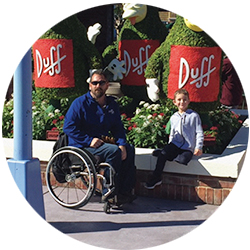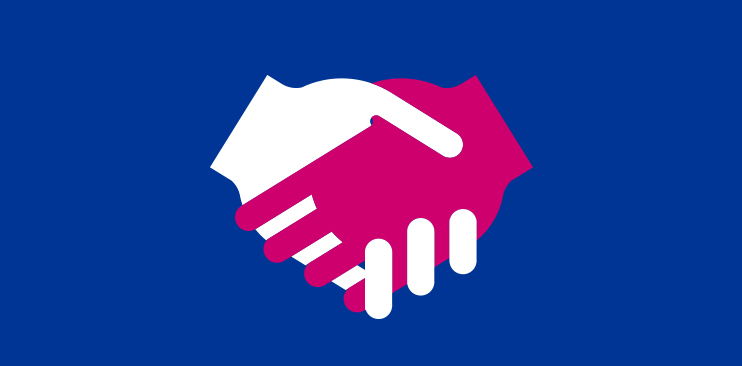Q: What do you do as Peer Support Co-ordinator?
Matt: I connect people like me – people living with a spinal cord injury – to anyone newly injured, or even people with an old injury, to help create a better situation for independent living. There are two of us here and we share our real-world experience. Sometimes I call us general factotums of disability from a lived experience point of view.We’re happy to help out in any way we can.
Q: What do people need the most help with?
Matt: Given the sheer size of this area, transportation is at the top of the list. It’s a very spread out population, and the distances that need to be travelled sometimes are immense. Getting to a medical facility or even just out to an event can be a challenge. Or when getting discharged from the hospital, it’s not good if someone is just going to bereadmitted because they can’t access services or groceries.People also want to participate in the community –socialize and enjoy events.
 Q: What are some other unique challenges of working in the Thunder Bay region?
Q: What are some other unique challenges of working in the Thunder Bay region?
Matt: There are different microclimates based on proximity to Lake Superior, so weather changes a lot. It can be minus 30C one day and plus 1C in the next breath. Also, because of distances, isolation can create difficulties, not just for accessing services but also for mental health. It can be hard,especially early on, to get out and connect with others. That can be tough mentally and emotionally. Transferring safely in and out of aircraft or boats is another challenge that comes to mind. We don’t just rely on trucks and vans. In Toronto, you’re generally not trying to move a person from a wheelchair into a Cessna. And with weight restrictions, only so much equipment can come along with someone.
Q: How else do you share your lived experience with others?
Matt: By providing a lot of practical details. For example, a lot of people don’t have paved roads, so how do you use your wheelchair to get around? I have personal experience with that. Or if someone wants to play sports or get back to hunting, how to do that? Sometimes I work on setting up community events, sometimes I connect people to groups.For example, Wounded Warriors or Paralyzed Veterans of America can help people get back out on the land. That’s where who you know and networking can come in.
Q: What can be unexpected about your work?
Matt: Well, you actually expect people to reach out at anytime. There aren’t really any off-hours. We might get a call at 9:00 pm because someone is out in the rain or snow and their power chair died on them. Of course, you always answer the phone. And then you call on your network – you know a guy who knows a guy and you go down the chain. And then 20 minutes later, the person who called is in a van and the wheelchair is also loaded in and we’re working on getting the battery fixed. Sometimes peer support is also peers of peers, at any time of the day or night.
Q: What do you like best about what you do?
Matt: I like the practical elements of helping. For example, keeping in mind that people who have difficulty accessing medical services also don’t have the internet or Google. They need written resources and materials – hard copies. Or helping people achieve mobility outside the home. Basically, the practical side of life that reaches beyond a textbook: daily living, how to use equipment in the real world, how to network for resources. That’s where experience is invaluable.






